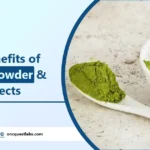Neem, often referred to as the “miracle tree,” has been a cornerstone of traditional medicine for centuries, particularly in Ayurvedic practices. Every part of the neem tree, from its leaves to its bark, has been utilized for its medicinal properties. Among the various forms of neem, neem juice has gained popularity as a potent natural remedy for a wide range of health concerns. Known for its rich nutrient profile and powerful bioactive compounds, neem juice is celebrated for its ability to boost immunity, improve skin health, and support overall well-being.
However, while neem juice offers numerous health benefits, it’s essential to be aware of its potential side effects, especially when consumed in excess or by individuals with certain health conditions. Understanding both the advantages and the risks associated with neem juice can help you make informed decisions about incorporating it into your wellness routine. This article delves into the nutritional profile, health benefits, and possible side effects of neem juice
Contents
Nutritional Profile of Neem Juice
| Nutrient | Quantity per 100ml | Health Benefits |
| Energy | 12 kcal | Low in calories, supports weight management |
| Carbohydrates | 2.5 g | Provides a small amount of energy |
| Protein | 1.2 g | Supports muscle repair and overall growth |
| Fiber | 0.9 g | Aids in digestion and promotes gut health |
| Vitamin C | 16 mg | Boosts immunity, acts as an antioxidant |
| Calcium | 15 mg | Supports bone health and muscle function |
| Iron | 1.1 mg | Essential for hemoglobin formation and oxygen transport |
| Magnesium | 9 mg | Helps in nerve function, muscle relaxation |
| Potassium | 77 mg | Maintains fluid balance, supports heart health |
| Sodium | 3 mg | Regulates blood pressure, supports nerve function |
| Phytochemicals | – | Provides antioxidants, anti-inflammatory effects |
| Azadirachtin | – | Acts as a natural pesticide, medicinal properties |
| Nimbin | – | Has antifungal, antibacterial, and anti-inflammatory properties |
Note: The specific nutritional values may vary based on the concentration of neem juice and the method of extraction.
Benefits of Neem Juice
Neem juice is a powerhouse of nutrients and bioactive compounds that offer a range of health benefits. Below, we explore some of the key health benefits of neem juice with in-depth explanations.
Boosts Immunity
Neem juice is rich in antioxidants, which play a crucial role in enhancing the immune system. Antioxidants like Vitamin C, flavonoids, and polyphenols in neem juice help combat oxidative stress by neutralizing free radicals, which can damage cells and lead to chronic diseases. The antimicrobial properties of neem juice also help in fighting off bacterial, viral, and fungal infections, thus keeping common illnesses at bay. Regular consumption of neem juice strengthens the body’s defense mechanisms, making it more resilient against infections and diseases.
Promotes Skin Health
Neem has long been revered in traditional medicine for its skin-healing properties, and neem juice is no exception. The anti-inflammatory, antibacterial, and antifungal properties of neem juice make it an effective remedy for various skin conditions, including acne, eczema, and psoriasis. Drinking neem juice helps detoxify the blood, reducing the appearance of blemishes, dark spots, and pigmentation. The antioxidants in neem juice also help slow down the aging process by protecting the skin from free radical damage, resulting in a clearer, more youthful complexion.
Supports Digestive Health
Neem juice is known for its digestive benefits, particularly its ability to cleanse the digestive tract and support the proper functioning of the stomach and intestines. It has been traditionally used to treat a variety of gastrointestinal issues, including constipation, bloating, and indigestion. Neem juice acts as a natural detoxifier, helping to flush out toxins from the body and improving liver function. Additionally, its antibacterial properties can help in managing stomach ulcers by fighting the bacteria that cause them. Regular consumption of neem juice can promote healthy digestion, reduce acidity, and maintain overall gut health.
Regulates Blood Sugar Levels
One of the most significant benefits of neem juice is its potential to regulate blood sugar levels, making it particularly beneficial for individuals with diabetes. Neem juice contains compounds that have been shown to improve insulin sensitivity and reduce blood glucose levels. These compounds work by stimulating the pancreas to produce more insulin and by enhancing the uptake of glucose by the body’s cells. This helps in maintaining stable blood sugar levels and preventing the spikes and crashes that are common in diabetic patients. However, it’s important to consult with a healthcare provider before using neem juice as a complementary treatment for diabetes.
Enhances Oral Health
Neem has been traditionally used in oral care for its antibacterial and anti-inflammatory properties. Drinking neem juice can help prevent and treat various oral issues, such as gum disease, bad breath, and tooth decay. The antimicrobial properties of neem juice help in reducing the buildup of plaque, which is a leading cause of gingivitis and periodontitis. Additionally, neem juice can help soothe inflamed gums and prevent infections in the mouth. Incorporating neem juice into your diet can contribute to better oral hygiene and overall dental health.
Promotes Liver Health
The liver plays a critical role in detoxifying the body, and neem juice can be a powerful ally in maintaining liver health. Neem juice has hepatoprotective properties, meaning it helps protect the liver from damage caused by toxins, alcohol, and other harmful substances. By promoting the production of bile, neem juice aids in the digestion of fats and the elimination of waste products from the body. It also helps in reducing inflammation in the liver, which can be beneficial in managing conditions like fatty liver disease and hepatitis. Regular consumption of neem juice supports liver detoxification processes and enhances overall liver function.
Supports Hair Health
Neem juice is beneficial not only for the skin but also for hair health. Its antifungal properties make it effective in treating dandruff and other scalp infections. Drinking neem juice can help improve blood circulation to the scalp, promoting healthier and stronger hair growth. The nutrients in neem juice also help in reducing hair fall and preventing premature graying. Additionally, applying neem juice topically to the scalp can help soothe irritation and itchiness, further supporting scalp health. Incorporating neem juice into your diet or hair care routine can result in stronger, shinier, and healthier hair
Side Effects of Neem Juice
While neem juice offers numerous health benefits, it’s important to be aware of its potential side effects, especially when consumed in large amounts or by individuals with certain health conditions. Below are some of the side effects of neem juice:
Potential Toxicity
Neem juice contains potent bioactive compounds, which can be toxic if consumed in excessive amounts. Overconsumption of neem juice may lead to symptoms of neem toxicity, such as nausea, vomiting, diarrhea, drowsiness, and, in severe cases, seizures or loss of consciousness. It’s crucial to adhere to recommended dosages and consult with a healthcare provider before starting neem juice, particularly for long-term use.
Allergic Reactions
Some individuals may be allergic to neem or its compounds. Allergic reactions can manifest as skin rashes, itching, swelling, or difficulty breathing after consuming neem juice. If you experience any of these symptoms, discontinue use immediately and seek medical attention. It’s advisable to start with a small dose to test for any allergic reactions before incorporating neem juice into your routine.
Impact on Pregnancy and Fertility
Neem juice is not recommended for pregnant or breastfeeding women due to its potential effects on fertility and uterine contractions. Neem has been traditionally used as a natural contraceptive in some cultures, and consuming it during pregnancy may increase the risk of miscarriage or harm the developing fetus. Additionally, neem juice might affect sperm quality and male fertility when consumed in high doses, so it’s advisable for couples trying to conceive to avoid neem juice.
Interactions with Medications
Neem juice can interact with certain medications, potentially reducing their effectiveness or causing adverse reactions. For instance, neem’s blood sugar-lowering effects may enhance the effects of antidiabetic medications, leading to hypoglycemia (low blood sugar levels). Similarly, neem juice might interfere with immunosuppressive drugs, anticoagulants (blood thinners), or antihypertensive medications. If you are on any long-term medication, consult your healthcare provider before consuming neem juice to avoid possible interactions.
Digestive Issues
In some cases, neem juice can cause digestive discomfort, particularly if consumed on an empty stomach or in large quantities. Common symptoms include stomach upset, nausea, bloating, and diarrhea. To mitigate these effects, it is recommended to start with a small dose and gradually increase it while monitoring your body’s response. Additionally, consuming neem juice with food can help reduce the likelihood of gastrointestinal issues.
How to Consume Neem Juice
Neem juice is a potent natural remedy, and consuming it correctly can help maximize its health benefits while minimizing potential side effects. Here’s how you can safely and effectively incorporate neem juice into your daily routine:
Recommended Dosage
The appropriate dosage of neem juice can vary depending on individual health needs and tolerance. Generally, a safe and effective daily dose ranges between 10-20 ml (approximately 2-4 teaspoons) of neem juice diluted in water or another liquid. It’s advisable to start with a smaller dose, such as 5 ml (1 teaspoon), and gradually increase it as your body adjusts. Always consult with a healthcare provider before beginning regular neem juice consumption, especially if you have underlying health conditions.
Best Time to Consume
Neem juice is best consumed on an empty stomach in the morning for optimal detoxification benefits. Taking it first thing in the morning allows your body to absorb the nutrients more effectively and helps kickstart your digestive system for the day. However, if you experience any stomach discomfort, you may choose to take it after a light meal to reduce the likelihood of irritation.
Methods of Consumption
- Dilution in Water: The most common way to consume neem juice is by diluting it in a glass of water. This helps reduce the bitterness of the juice and makes it easier to drink. You can also add a teaspoon of honey or a squeeze of lemon to improve the taste.
- Mixing with Other Juices: If the taste of neem juice is too strong, consider mixing it with other fruit or vegetable juices like orange juice, carrot juice, or coconut water. This not only makes it more palatable but also adds additional nutrients to your drink.
- Adding to Smoothies: Another way to incorporate neem juice into your diet is by adding it to your morning smoothie. The other ingredients in the smoothie can help mask the bitter taste of neem juice, making it more enjoyable to consume.
Conclusion
Neem juice is a remarkable natural remedy with a wide array of health benefits, including boosting immunity, promoting skin health, supporting digestion, and regulating blood sugar levels. However, due to its potency, it is crucial to consume neem juice in moderation and be mindful of its potential side effects, especially for individuals with certain health conditions or those taking specific medications. By following proper dosage guidelines and consulting with a healthcare provider, neem juice can be a beneficial addition to your health regimen, helping to enhance your overall well-being.
FAQs
Can I consume neem juice daily?
- Yes, neem juice can be consumed daily, but it’s important to stick to the recommended dosage of 10-20 ml per day. Overconsumption may lead to side effects, so it’s advisable to consult with a healthcare provider before making it a part of your daily routine.
What is the best time to drink neem juice?
- The best time to drink neem juice is on an empty stomach in the morning. This allows your body to absorb the nutrients more effectively and enhances its detoxifying benefits. If you experience stomach discomfort, you can consume it after a light meal.
Are there any side effects of drinking neem juice?
- While neem juice offers many health benefits, it can cause side effects such as nausea, vomiting, or allergic reactions if consumed in excess. It’s also not recommended for pregnant or breastfeeding women and may interact with certain medications.
Can neem juice help with weight loss?
- Neem juice may support weight loss by boosting metabolism and aiding digestion. However, it should be used as part of a balanced diet and healthy lifestyle rather than as a standalone solution for weight loss.
Is neem juice safe for children?
- Neem juice is generally not recommended for children due to its potent properties and potential side effects. It’s best to consult with a pediatrician before giving neem juice to a child.





